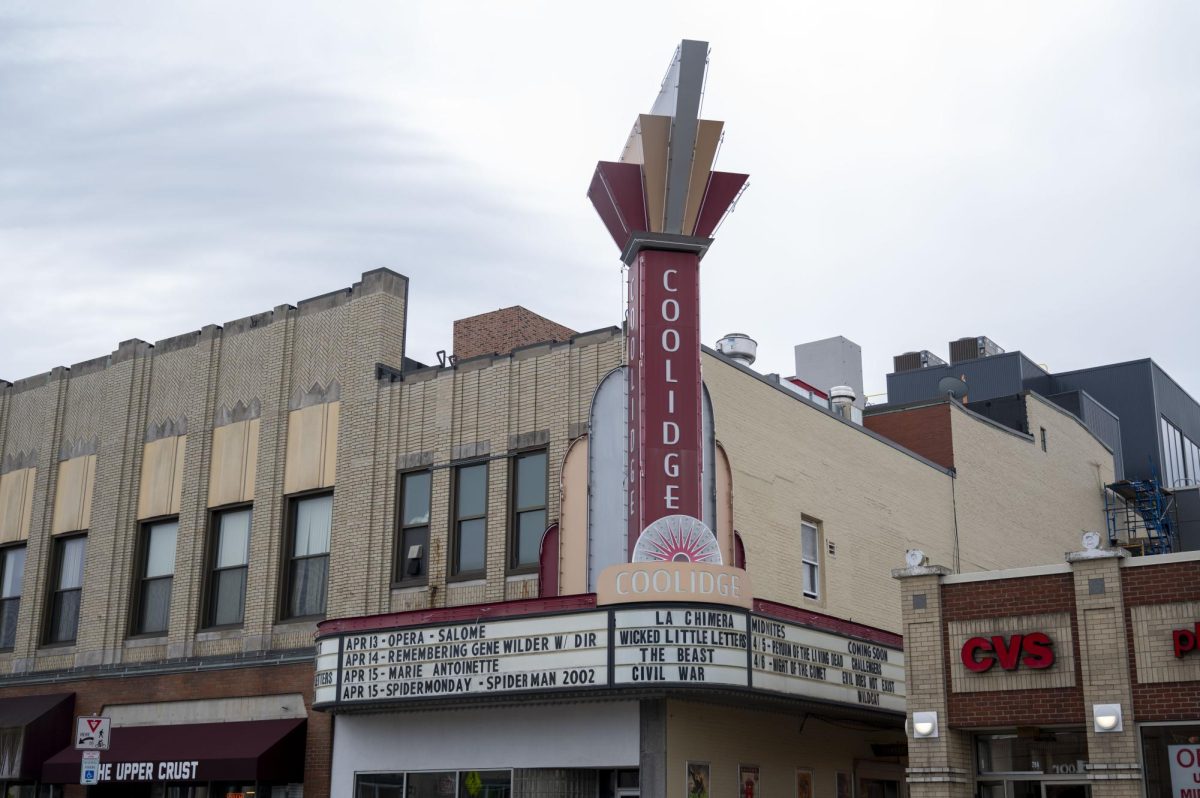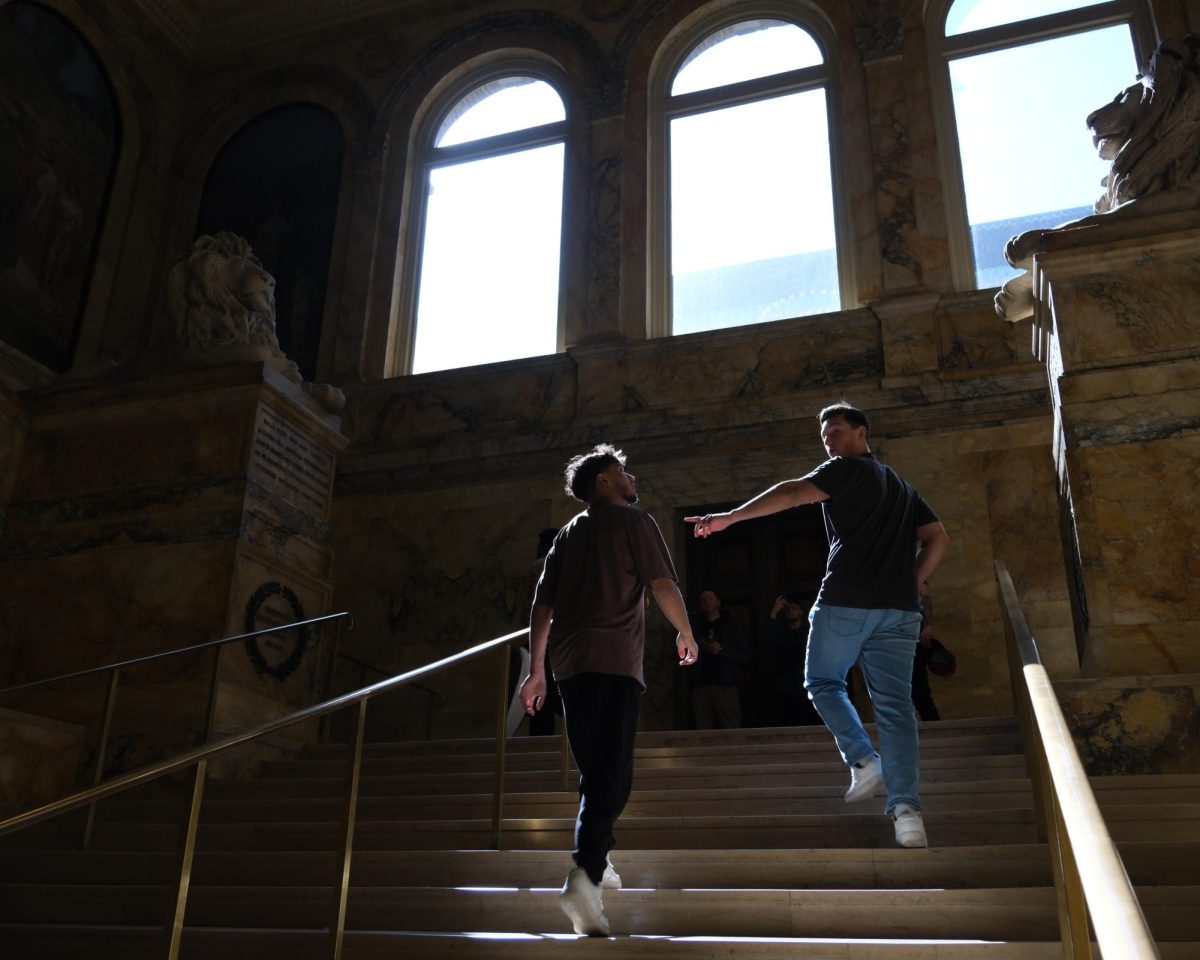
By Nick Marini, News Correspondent
The myth of vampires has seen a wave of resurgence in the past decade or so, largely due to prominence in children’s books, movies and cable TV. We know the rules for the famous folklore, one of which being their proud agelessness. But does that make them blessed or cursed, trapped forever young or suffering as infinitely wise? The latest from Vampire Weekend, “Modern Vampires of the City,” attacks such a notion with a bloodthirsty rigor without losing a drop of delicacy, as smooth and classy as some of our idols.
That consideration also leads to the “anxiety” theme throughout, and they play like it. A standout in “Hannah Hunt” bleeds the lament of an exhausted young girl whose own naïveté shrouds the very real possibility that indeed “plants can move.” The metaphorical lyrics snake through the fresh but defeated sound, sprinkled with subtle production value.
Top songs are “Step,” “Hannah Hunt” and “Hudson,” while “Finger Back” is most like their older stuff and “Diane Young” is the addictive well-chosen single.
The majority of the album deals with a coming of age type of experiential learning. “Step” maybe encapsulates this the most. The singer seems torn over deciding if ignorance really is bliss, or if the bumpy transition into what he calls a “modest mouse” is worth the trouble. There is apparent pleading in attempts to convince a lover, a higher power and perhaps themselves that despite certain identities from their past looming over them like dense fog, they are mature enough to handle the responsibility. If it is anything like their musical progression, they are convincing.
Still, the album is somewhat stripped sound-wise. Subtle production touches, most notably on lead singer Ezra Koenig’s high sturdy voice, are numerous, well-placed and in sync with keys and staticky guitar riffs. The drums patter right along, keeping the energy ripe for the optimist’s taking. This is a very reflexive album; Koenig at times addresses himself through the eyes of others, or speculates views on a higher power. When he is not remembering how he used to be, Koenig expresses anxiety about what he is becoming. The future is not understood and causes unease, but it is hard to tell if he is distraught or nervously prepared to handle the totality of time.
It is the band’s tightest and most ambitious album to date. It still recalls the Vampire Weekend of lore, but they’ve moved into a newer era of both precise lyrics and tense sound. “Hudson” stands out as a top and also the darkest song on the record. Loaded with the gravitas that resonates throughout the record, this song is specifically choral (hymnal, even), contemplative, haunting and brilliant by bringing in an existential philosophy on time and pondering its essential effect. The lyrics exist just as well alone, heavy and solemn, but the dreamscape apparition behind the words only improves the song. The song’s protagonist considers if dying young (the play on “Diane Young”) is in fact worth a lifetime.
Biggest in scope, broadest in sound, there is a great record in “Modern Vampires of the City.” Even if this is the best the group ever gets, they found success. It is dense but accessible – they have their pop and think about it too.
This is a realist’s album, not a cynic’s. There is a fine line there. A major question is if dying young is worth it, to perish while still holding intact the illusion of your dreams. Perhaps better yet, and what the (generally) energetic sound suggests, is although we surrender the idealistic aspirations of our youth to a blunt reality, we emerge “better off,” for lack of a better term, on the other side of pain-through-experience. Maybe it’s others, God or simply ourselves, but the experiences are not in vain. Looking at the place in time where Vampire Weekend created the album, they are on the cusp of something new. They ask us to listen carefully, and the closer you get, the more you realize what’s coming might be trying to sink its teeth into your neck.












